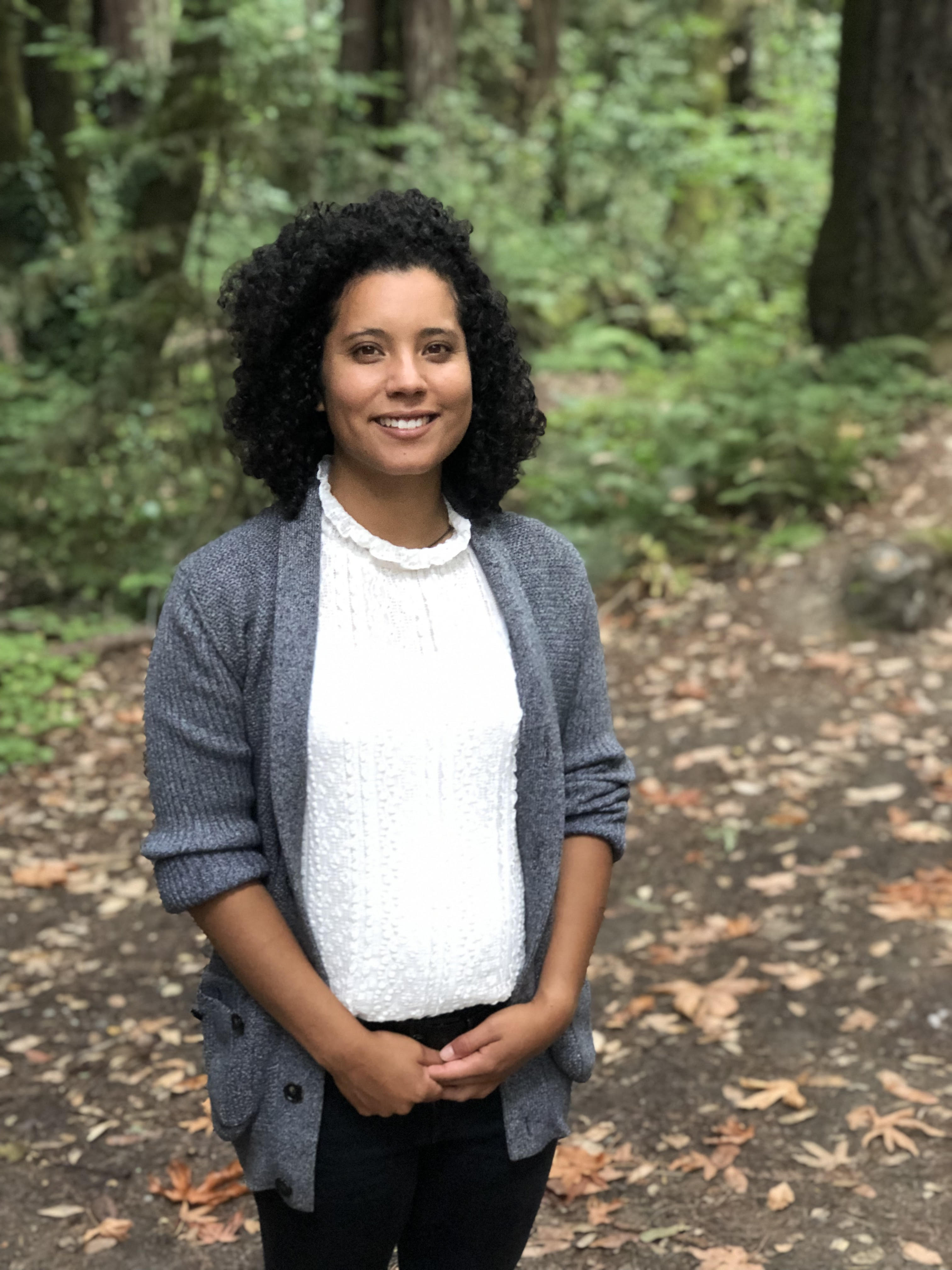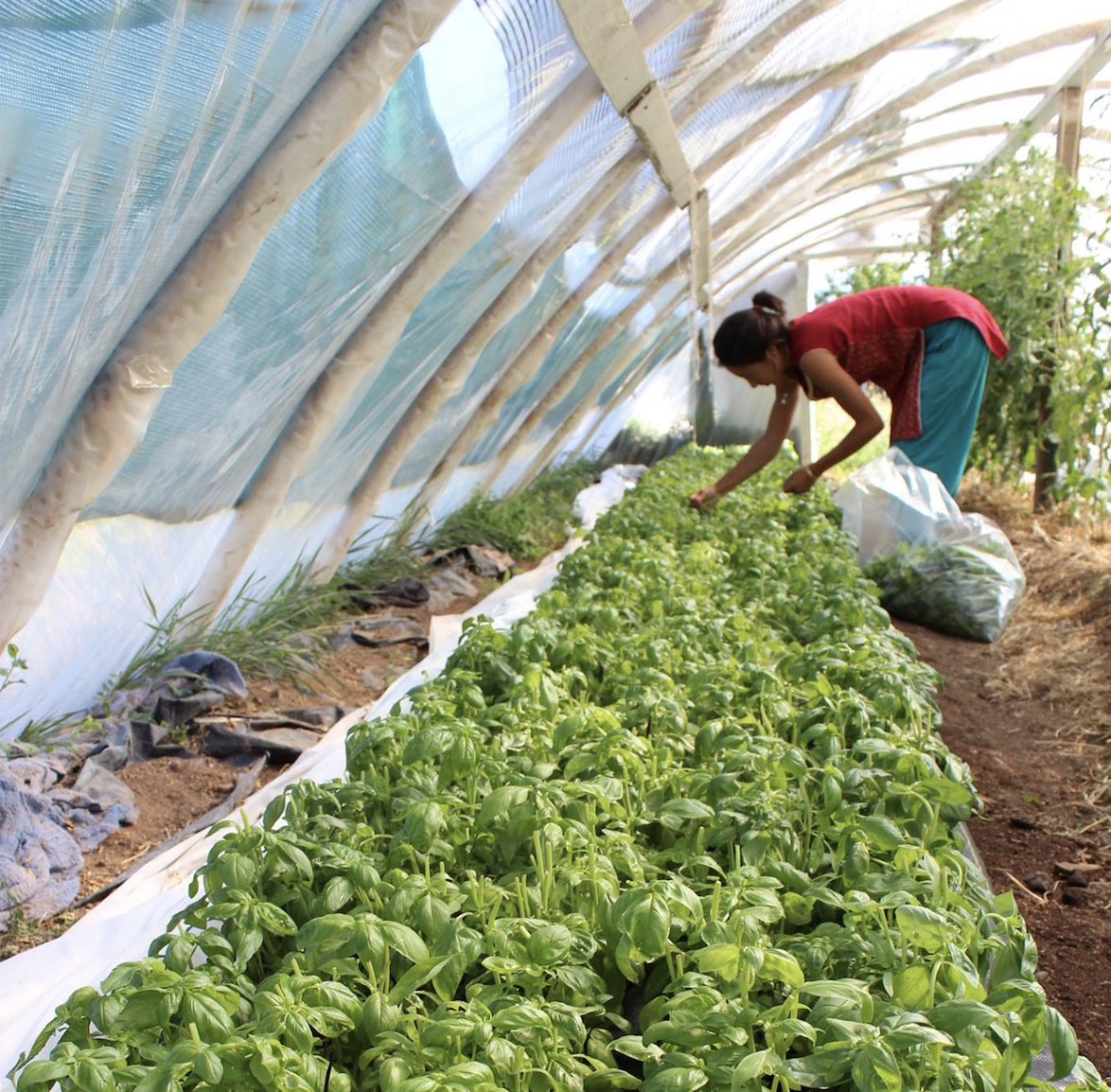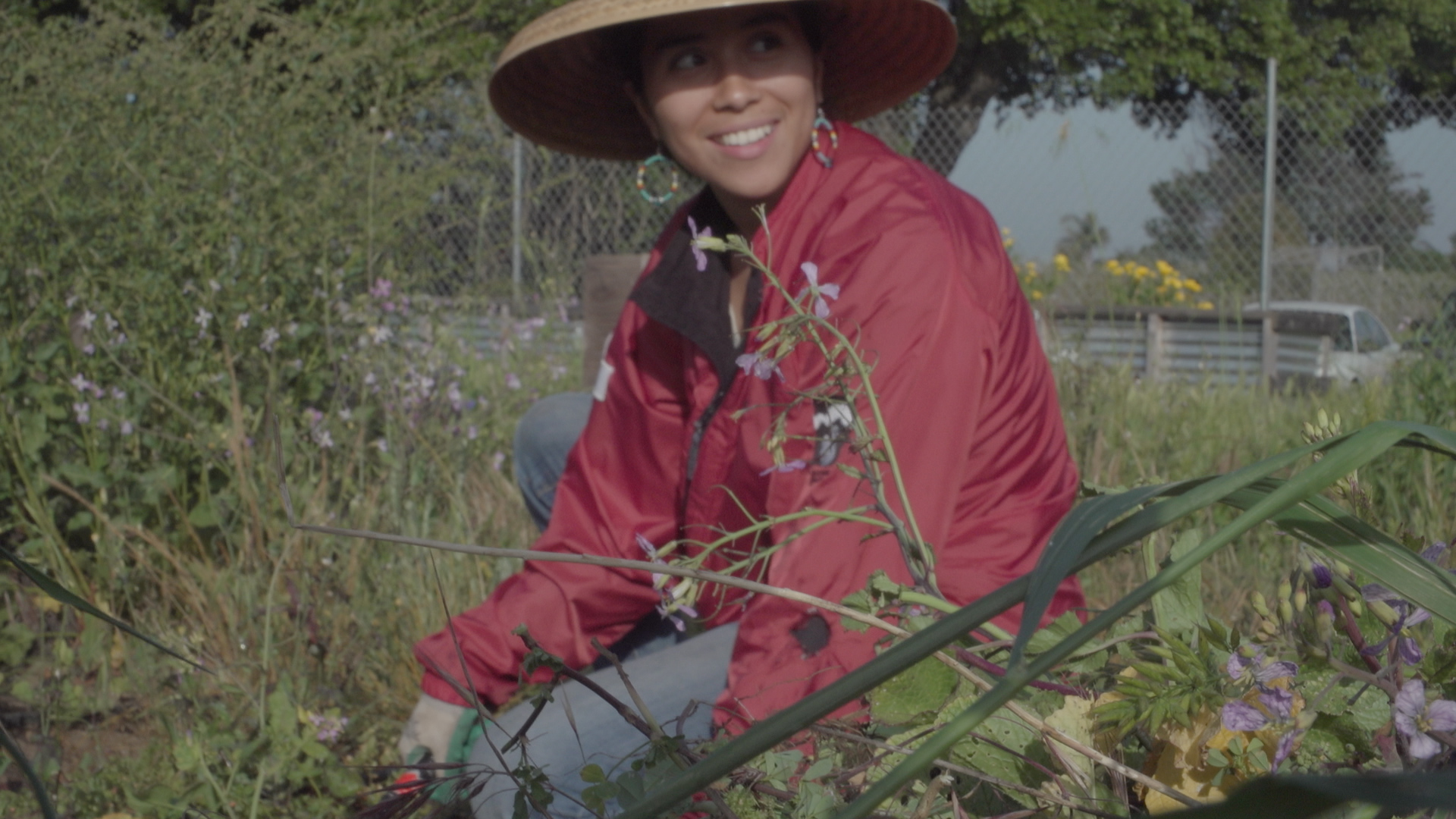(H)ACER Fellows
Andrea Del Carmen Vazquez
 Andrea Del Carmen Vazquez is a Ph.D. student in Education with a designated emphasis in Critical Race and Ethnic Studies. As an anthropologist of education, Andrea uses critical ethnography to outlines the topographies of the liberal-progressive state in schools. In particular, Andrea's research examines how notions and discourses of progressiveness inform queer youth's agential practices in an agro-industrial community in California.
Andrea Del Carmen Vazquez is a Ph.D. student in Education with a designated emphasis in Critical Race and Ethnic Studies. As an anthropologist of education, Andrea uses critical ethnography to outlines the topographies of the liberal-progressive state in schools. In particular, Andrea's research examines how notions and discourses of progressiveness inform queer youth's agential practices in an agro-industrial community in California.
Aysha Peterson
 Aysha Peterson is a third-year Ph.D. student in the Environmental Studies department. She uses community-engaged research methodologies in her work throughout the Central Coast region, where she collaborates with residents, farmers, and community-based organizations to address issues of water injustice amidst agricultural nitrate pollution. She is often concerned with situating research paradigms within the settler colonial context and is curious about the ways that decolonizing methodologies can support our collective liberation. Aysha’s research dovetails with the water justice focus of (H)ACER’s 2019-2020 research methods courses and provides on-the-ground context for classroom discussions.
Aysha Peterson is a third-year Ph.D. student in the Environmental Studies department. She uses community-engaged research methodologies in her work throughout the Central Coast region, where she collaborates with residents, farmers, and community-based organizations to address issues of water injustice amidst agricultural nitrate pollution. She is often concerned with situating research paradigms within the settler colonial context and is curious about the ways that decolonizing methodologies can support our collective liberation. Aysha’s research dovetails with the water justice focus of (H)ACER’s 2019-2020 research methods courses and provides on-the-ground context for classroom discussions.
Luna Ramirez Hernandez
 Luna Ramirez Hernandez is of Otomi ancestry born on the traditional territory of the Southern Pomo and Coast Miwok Peoples, which today is known as Santa Rosa (CA), that was first occupied, and continues to be occupied by colonial and capitalist violence. Luna began her higher education at her local community college, and now, ten years later, she is completing her last undergraduate year at UC Santa Cruz where she is double majoring in Critical Race and Ethnic Studies and Anthropology. Currently Luna is the (H)ACER program undergraduate researcher, examining garden-based science education through a decolonial framework, which includes the development of an anti-colonial, anti-racist garden curriculum. After UCSC, she will return back to her community to establish a collective Land project, that first and foremost will serve the Southern Pomo and Coast Miwok Peoples, and also communities of the global majority, through the establishment of an Indigenous medicine garden, farm, and living collective. The collective’s focus is self-determination and Indigenous resurgence by centering Indigenous knowledge and practices of Land, food, and kinship, all rooted in the well-being of the widest conceivable interconnectedness of “All My Relations” (including nonhuman beings in addition to the Land) to create new relations for nurturing, healing, and transformation as the Ancestors of the future seven generations.
Luna Ramirez Hernandez is of Otomi ancestry born on the traditional territory of the Southern Pomo and Coast Miwok Peoples, which today is known as Santa Rosa (CA), that was first occupied, and continues to be occupied by colonial and capitalist violence. Luna began her higher education at her local community college, and now, ten years later, she is completing her last undergraduate year at UC Santa Cruz where she is double majoring in Critical Race and Ethnic Studies and Anthropology. Currently Luna is the (H)ACER program undergraduate researcher, examining garden-based science education through a decolonial framework, which includes the development of an anti-colonial, anti-racist garden curriculum. After UCSC, she will return back to her community to establish a collective Land project, that first and foremost will serve the Southern Pomo and Coast Miwok Peoples, and also communities of the global majority, through the establishment of an Indigenous medicine garden, farm, and living collective. The collective’s focus is self-determination and Indigenous resurgence by centering Indigenous knowledge and practices of Land, food, and kinship, all rooted in the well-being of the widest conceivable interconnectedness of “All My Relations” (including nonhuman beings in addition to the Land) to create new relations for nurturing, healing, and transformation as the Ancestors of the future seven generations.
 Andrea Del Carmen Vazquez is a Ph.D. student in Education with a designated emphasis in Critical Race and Ethnic Studies. As an anthropologist of education, Andrea uses critical ethnography to outlines the topographies of the liberal-progressive state in schools. In particular, Andrea's research examines how notions and discourses of progressiveness inform queer youth's agential practices in an agro-industrial community in California.
Andrea Del Carmen Vazquez is a Ph.D. student in Education with a designated emphasis in Critical Race and Ethnic Studies. As an anthropologist of education, Andrea uses critical ethnography to outlines the topographies of the liberal-progressive state in schools. In particular, Andrea's research examines how notions and discourses of progressiveness inform queer youth's agential practices in an agro-industrial community in California.  Aysha Peterson is a third-year Ph.D. student in the Environmental Studies department. She uses community-engaged research methodologies in her work throughout the Central Coast region, where she collaborates with residents, farmers, and community-based organizations to address issues of water injustice amidst agricultural nitrate pollution. She is often concerned with situating research paradigms within the settler colonial context and is curious about the ways that decolonizing methodologies can support our collective liberation. Aysha’s research dovetails with the water justice focus of (H)ACER’s 2019-2020 research methods courses and provides on-the-ground context for classroom discussions.
Aysha Peterson is a third-year Ph.D. student in the Environmental Studies department. She uses community-engaged research methodologies in her work throughout the Central Coast region, where she collaborates with residents, farmers, and community-based organizations to address issues of water injustice amidst agricultural nitrate pollution. She is often concerned with situating research paradigms within the settler colonial context and is curious about the ways that decolonizing methodologies can support our collective liberation. Aysha’s research dovetails with the water justice focus of (H)ACER’s 2019-2020 research methods courses and provides on-the-ground context for classroom discussions.  Luna Ramirez Hernandez is of Otomi ancestry born on the traditional territory of the Southern Pomo and Coast Miwok Peoples, which today is known as Santa Rosa (CA), that was first occupied, and continues to be occupied by colonial and capitalist violence. Luna began her higher education at her local community college, and now, ten years later, she is completing her last undergraduate year at UC Santa Cruz where she is double majoring in Critical Race and Ethnic Studies and Anthropology. Currently Luna is the (H)ACER program undergraduate researcher, examining garden-based science education through a decolonial framework, which includes the development of an anti-colonial, anti-racist garden curriculum. After UCSC, she will return back to her community to establish a collective Land project, that first and foremost will serve the Southern Pomo and Coast Miwok Peoples, and also communities of the global majority, through the establishment of an Indigenous medicine garden, farm, and living collective. The collective’s focus is self-determination and Indigenous resurgence by centering Indigenous knowledge and practices of Land, food, and kinship, all rooted in the well-being of the widest conceivable interconnectedness of “All My Relations” (including nonhuman beings in addition to the Land) to create new relations for nurturing, healing, and transformation as the Ancestors of the future seven generations.
Luna Ramirez Hernandez is of Otomi ancestry born on the traditional territory of the Southern Pomo and Coast Miwok Peoples, which today is known as Santa Rosa (CA), that was first occupied, and continues to be occupied by colonial and capitalist violence. Luna began her higher education at her local community college, and now, ten years later, she is completing her last undergraduate year at UC Santa Cruz where she is double majoring in Critical Race and Ethnic Studies and Anthropology. Currently Luna is the (H)ACER program undergraduate researcher, examining garden-based science education through a decolonial framework, which includes the development of an anti-colonial, anti-racist garden curriculum. After UCSC, she will return back to her community to establish a collective Land project, that first and foremost will serve the Southern Pomo and Coast Miwok Peoples, and also communities of the global majority, through the establishment of an Indigenous medicine garden, farm, and living collective. The collective’s focus is self-determination and Indigenous resurgence by centering Indigenous knowledge and practices of Land, food, and kinship, all rooted in the well-being of the widest conceivable interconnectedness of “All My Relations” (including nonhuman beings in addition to the Land) to create new relations for nurturing, healing, and transformation as the Ancestors of the future seven generations. 